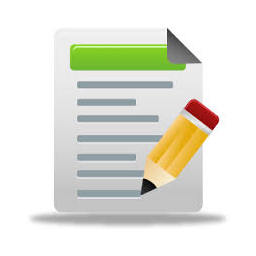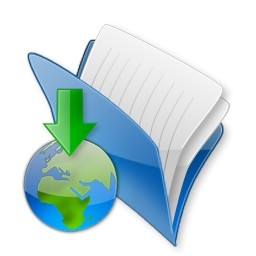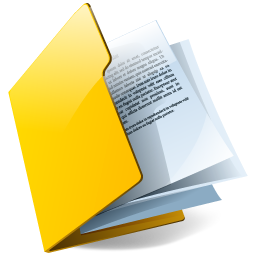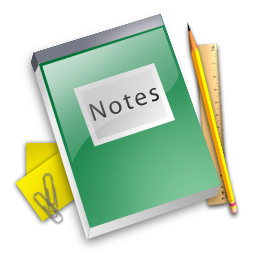Social Science
Class 7 Social Science complete exam preparation kit in form of syllabus, sample question papers, NCERT solutions, best videos, online MCQ tests and homework help is provided in this section. The topics covered are History (Tracing Changes Through A Thousand Years, New Kings And Kingdoms, The Delhi Sultans, The Mughal Empire, Rulers And Buildings, Towns, Traders And Crafts persons, Tribes, Nomads And Settled Communities, Devotional Paths To The Divine, The Making Of Regional Cultures, Eighteenth-Century Political Formations), Geography (Environment, Inside Our Earth, Our Changing Earth, Air, Water, Natural Vegetation and Wildlife, Human Environment–Settlement, Transport and Communication, Human Environment Interactions The Tropical and the Subtropical Region, Life in the Temperate Grasslands, Life in the Deserts and Civics (Equality in Indian Democracy, State Government, Gender, Media and Advertising, Markets, Equality in Indian Democracy).

CBSE, JEE, NEET, CUET
Question Bank, Mock Tests, Exam Papers
NCERT Solutions, Sample Papers, Notes, Videos

myCBSEguide App
Complete Guide for CBSE Students
NCERT Solutions, NCERT Exemplars, Revison Notes, Free Videos, CBSE Papers, MCQ Tests & more.
CBSE class 7 Social Science syllabus, question papers, online tests and important questions as per CBSE syllabus. Notes, test papers and school exam question papers with solutions. Main topics are History (Tracing Changes Through A Thousand Years, New Kings And Kingdoms, The Delhi Sultans, The Mughal Empire, Rulers And Buildings, Towns, Traders And Crafts persons, Tribes, Nomads And Settled Communities, Devotional Paths To The Divine, The Making Of Regional Cultures, Eighteenth-Century Political Formations), Geography (Environment, Inside Our Earth, Our Changing Earth, Air, Water, Natural Vegetation and Wildlife, Human Environment–Settlement, Transport and Communication, Human Environment Interactions The Tropical and the Subtropical Region, Life in the Temperate Grasslands, Life in the Deserts and Civics (Equality in Indian Democracy, State Government, Gender, Media and Advertising, Markets, Equality in Indian Democracy).
Where, When and How
(a) Terms used to describe the subcontinent and its regions with a map.
(b) An outlining of the time frame and major developments.
(c) A brief discussion on sources.
New Kings and Kingdoms
(a) An outline of political developments c. 700-1200 (b) A case study of the Cholas, including agrarian expansion in the Tamil region.
The Sultans of Delhi
(a) An overview.
(b) The significance of the court, nobility and land control.
(c) A case study of the Tughlaqs.
The Creation of An Empire
(a) An outline of the growth of the Mughal Empire.
(b) Relations with other rulers, administration, and the court.
(c) Agrarian relations.
(d) A case study of Akbar.
Architecture as Power: Forts and Sacred Places
(a) Varieties of monumental architecture in different parts of the country.
(b) A case study of Shah Jahan’s patronage of architecture.
Towns, Traders and Craftsmen
(a) Varieties of urban centers—court towns, pilgrimage centers, ports and trading towns.
(b) Case studies: Hampi, Masulipatam, Surat
Social Change: Mobile and settled communities (a) A discussion on tribes, nomads and itinerant groups.
(b) Changes in the caste structure.
(c) Case studies of state formation: Gonds, Ahoms.
Popular Beliefs and Religious Debates
(a) An overview of belief-systems, rituals, pilgrimages, and syncretic cults.
(b) Case Study: Kabir.
The Flowering of Regional Cultures
(a) An overview of the regional languages, literatures, painting, music.
(b) Case study: Bengal.
New Political Formations in the Eighteenth Century
(a) An overview of the independent and autonomous states in the subcontinent.
(b) Case study: Marathas
CLASS VII : OUR ENVIRONMENT
Environment in its totality: natural and human environment.
Natural Environment: land – interior of the earth, rocks and minerals; earth movements and major land forms. (One case study related with earthquake to be introduced)
Air – composition, structure of the atmosphere, elements of weather and climate – temperature, pressure, moisture and wind. (One case study related with cyclones to be introduced)
Water – fresh and saline, distribution of major water bodies, ocean waters and their circulation. (One case study related with tsunami to be introduced)
Natural vegetation and wild life.
Human Environment: settlement, transport and communication.
Human – Environment Interaction: Case Studies – life in desert regions – Sahara and Ladakh; life in tropical and sub-tropical regions – Amazon and Ganga-Brahmaputra; life in temperate regions – Prairies and Veldt.
CLASS VII : DEMOCRACY AND EQUALITY
UNIT 1: Democracy
This unit will focus on the historical as well as the key elements that structure a democracy. The structures in place to make people’s representation a reality will be discussed with reference to its actual functioning.
Section 1
Why Democracy
Two main thrusts
• Historical
What were some of the key junctures and transformations in the emergence of democracy in modern societies?
• Key Features
– The different systems of power that exist in the world today.
– Significant Elements that continue to make Democracy popular in the contemporary world:
• Formal Equality.
• Decision Making mechanisms.
• Accommodation of differences.
• Enhancing human dignity.
Section 2
Institutional Representation of Democracy
• Universal Adult Franchise.
• Elections.
• Political parties.
• Coalition Governments
Unit 2: State Government
This unit will focus on the legislative, executive and administrative aspects of state government. It will discuss processes involved in choosing MLAs, passing a bill and discuss how state governments function through taking up one issue. This unit might also contain a section on the nation-state.
Section 1: Its working
• Main functionaries-broad outline of the role of the Chief minister and the council of ministers Section 2: Its functioning
Through one example:
land reform/irrigation/education/water/health discuss
• The nature of the role played by the government – regarding resources and services.
• Factors involved in distribution of resources/ services.
• Access of localities and communities to resources/ services.
UNIT 3: Understanding Media
In this unit the various aspects of the role of a media in a democracy will be highlighted. This unit will also include a discussion on advertising as well as on the right to information bill.
Section 1 : Media and Democracy
Media’s role in providing the following:
• providing information,
• providing forum for discussion/debate creating public opinion.
Media ethics and accountability.
Relationship between Government and Information A case-study of the popular struggle that brought about the enactment of this legislation.
Section 2 : On Advertising
• Commercial Advertising and consumerism,
• Social advertising.
UNIT 4: Unpacking Gender
This unit is to understand the role gender plays in ordering our social and economic lives.
Section 1 : Social Aspects
Norms, values that determine roles expected from boys and girls in the:
• family,
• community,
• schools,
• public spaces,
• understanding Inequality: The role of gender in creating unequal and hierarchical relations in society.
Section 2 : Economic Aspects
• gender division of labour within family,
• value placed on women’s work within and outside the home,
• the invisibilisation of women’s labour.
UNIT 5: Markets Around Us
This unit is focused on discussing various types of markets, how people access these and to examine the workings of an actual market. Secton 1
• On retail markets and our everyday needs
• On role and impact of wholesale markets how are these linked to the above
• People’s access to markets depends upon many factors such as availability, convenience, credit, quality, price, income cycle etc.
Secton 2
Examine the role of an observable wholesale market such as grain, fruit, or vegetable to understand the chain of activities, the role of intermediaries and its impact on farmer -producers.

myCBSEguide
Trusted by 1 Crore+ Students

Test Generator
Create papers online. It's FREE.

CUET Mock Tests
75,000+ questions to practice only on myCBSEguide app
 myCBSEguide
myCBSEguide





